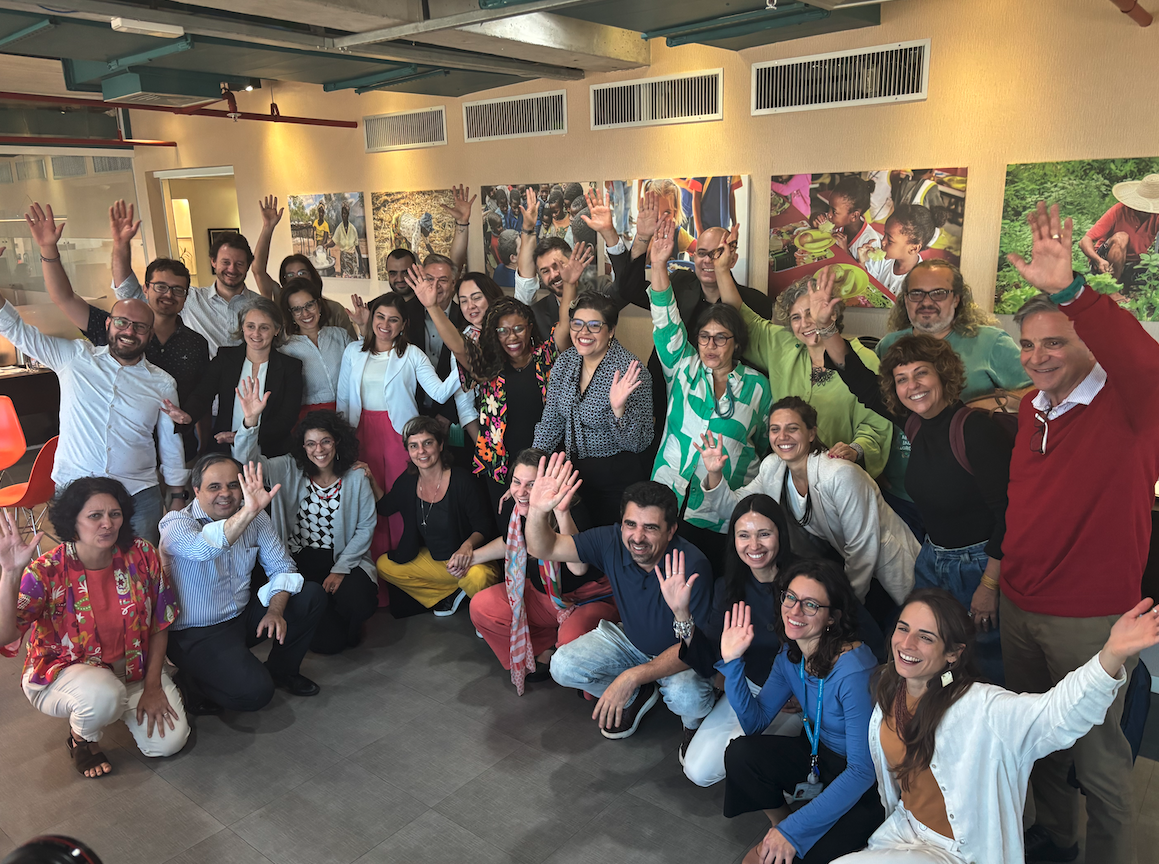
On 1 July, the WFP Centre of Excellence against Hunger in Brazil hosted a meeting on the Agroecological PNAE proposal. The workshop brought together authorities, technicians, government, academics and representatives of civil society to debate the paths and challenges of the agroecological transition in school feeding.
The initiative, led by the Comida do Amanhã Institute in partnership with the Regenera and Fome Zero institutes, has the support of the Rockefeller Foundation and the institutional support of the WFP Centre of Excellence Against Hunger in Brazil.
“The school meals programme is more than just a plate of food. It is a strategic policy for sustainable development, social justice and the transformation of food systems,” said Daniel Balaban, director of the WFP Centre of Excellence in Brazil, at the opening of the event.
Agroecological transition
Juliana Tângari, director of the Comida do Amanhã Institute, presented the progress of the initiative, which includes workshops in the pilot municipalities, interviews with experts and an ongoing study on proposals to regulate the agroecological transition in the Programme. “Our challenge is to translate the spirit of agroecology into effective public policies that take into account the realities of the field and the school,” said Juliana.
During the “stimulating the debate” block, representatives from various government bodies made fundamental contributions.
Brazil’s commitment to the School Feeding Coalition and to international climate targets was the topic addressed by Saulo Ceolin, from the Ministry of Foreign Affairs (MRE). “Agroecology should be treated as economic and social infrastructure, with a focus on climate justice, gender and inclusion. It’s an investment, not a cost,” he said.
For Julian Perez, from the Ministry of Agrarian Development (MDA), public procurement is an engine for rural development. “The PNAE goes beyond food. It structures territories, generates income, keeps young people in the countryside and strengthens family farming. To do this, we need clear rules, technical support and recognition of the agro-ecological transition processes already underway,” he said.
Challenges and proposals
The discussion revealed a scenario of important advances, such as the legal prioritisation of organic and agroecological in the PNAE, differentiation in the per capita amount for indigenous and “quilombola” communities, but also persistent obstacles: greater integration with other institutional mechanisms, such as the National Plan for Agroecology and Organic Production, a review of the budget, accessibility of data on the purchase of family farming, certification difficulties, inadequate requirements in public notices and little integration between public policies.
Mariana Santarelli, from the School Feeding Observatory (OAE), warned of the difficulty Traditional Peoples and Communities (PCTs) have in being able to supply agroecological food for school feeding. This aspect was recently discussed by the Observatory, through the publication of the letter of recommendations “Public procurement for school feeding among indigenous peoples, quilombolas and traditional communities: where to go from here?”.
Daniel Bandoni, coordinator of Food and Nutritional Security, commented that the National Education Development Fund (FNDE) has been discussing internally the definitions for ‘self-consumption’ within the scope of the National School Meals Programme (PNAE), so that it is possible to draw up resolutions that subsidise the Public Calls that include PCTs.
Carlos Antônio Bonfim Pereira, from the National Articulation of Agroecology (ANA), presented successful local experiences and suggested valuing the lessons learnt from territories. “We need to recognise traditional knowledge, respect the times of nature and guarantee technical support that dialogues with the reality of the farmer,” he said.
Next steps
The meeting ended with the proposal to set up an Advisory Committee for the project, with representatives from the different sectors involved. The group will monitor the development of the actions, including the pilot projects in selected municipalities.
For Clayton Campagnolla, from the Zero Hunger Institute, this is a strategic step. “Brasil has all the conditions to lead a new generation of sustainable food policies. The Agroecological PNAE could be the showcase for this transformation “, he said. Collective construction will continue over the next few months with the systematisation of recommendations and the strengthening of intersectoral links.




